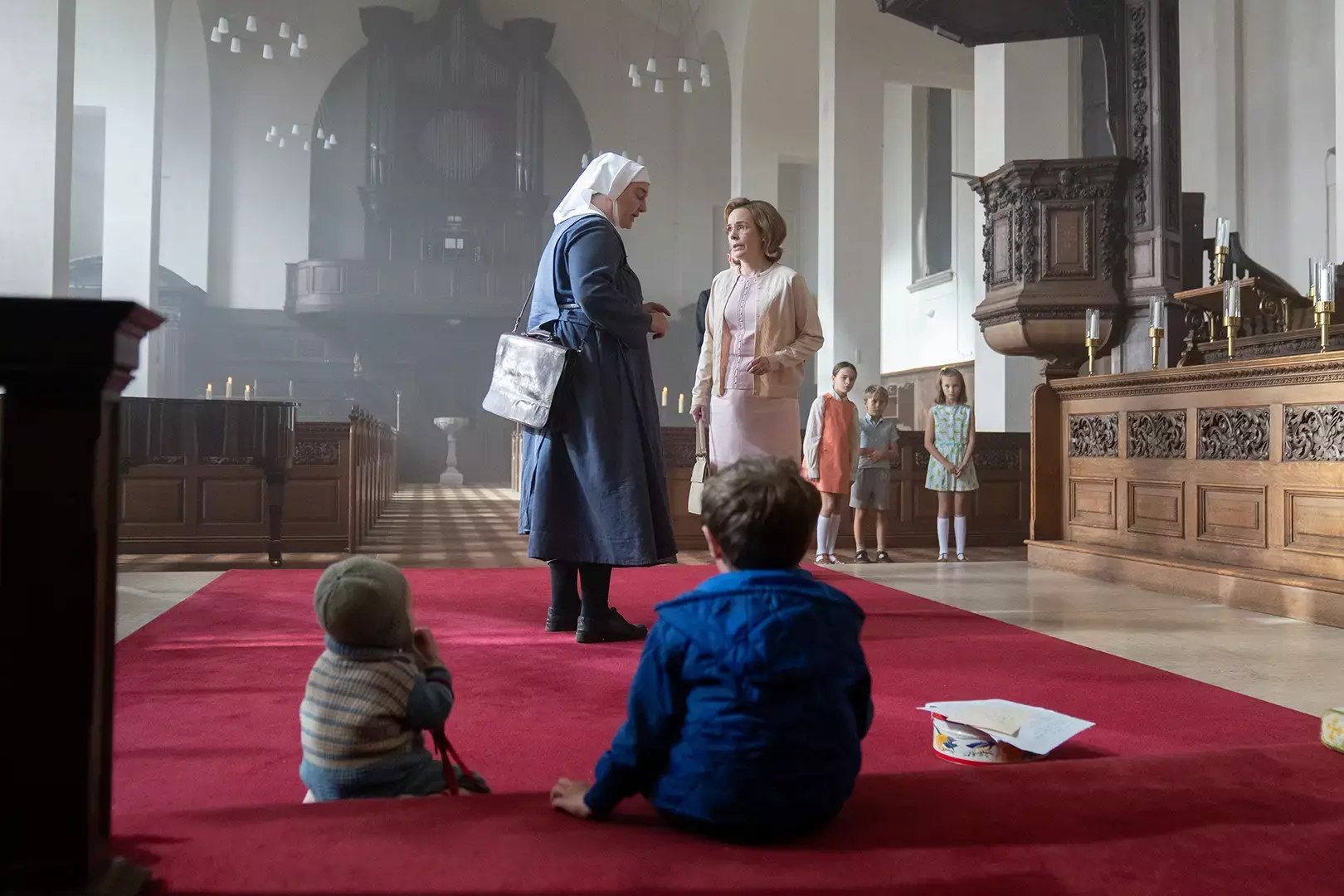In this week’s emotional episode of Call the Midwife, a mother made the difficult decision to leave her boys in a church because she no longer felt that she could care for them. Deirdre left her home in Ireland after enduring significant physical abuse from her husband, and only soon afterward learned that she was pregnant again. Once she arrived in England, she struggled to make ends meet and was eventually evicted from her home. She and her two young boys were left out on the streets. Deirdre must have been feeling so incredibly overwhelmed and desperate, and her deep love for her children led her to leave them in a church, where she hoped they would be found and well-cared for. She left home with hopes of a better life, only to meet more hardship and challenges than she could endure.
I can’t even begin to fathom what Deirdre was going through, but I do understand her deep love for her babies, and how that can lead someone to make decisions that others might not understand. When I had my first son, I remember just rocking and holding him, and crying on one of our first nights home. I told my husband that I just could not imagine anything bad ever happening to him; I just wanted to keep him safe forever and I knew I couldn’t guarantee that.
In this episode, Cyril, in his new role as a child welfare officer, struggles with how to move forward with Deirdre’s case. He sees her desperation and the immense love she has for her children. I’m sure his heart wants to reunite them, but he has to think about what is actually best and safest for the children. In the end, he does help Deirdre and her new baby girl get a place to stay along with some support; if all continues to go well, they can work toward reunifying her with her boys. Pupil midwife Rosalind also has been caring for Deirdre and continues to support her through this difficult time. Even though Rosalind has been told to have time off of work to prepare for her upcoming exams, she chooses to stay with Deirdre and help her write a letter to her boys that explains to them what’s going on and how much she loves them. It is through her experience caring for Deirdre that Rosalind starts to gain confidence in her abilities as a midwife.
Sometimes we have to make hard decisions in the best interests of our patients and their babies. This might mean a CPS referral to be sure the baby will be going home to a safe environment. It might mean looking into resources like Maternal-Infant Health Programs that offer additional support to pregnant women and families. Sometimes it will be staying after your shift to debrief a situation, answer patient questions, or finish notes that you didn’t write during the workday because you spent your time speaking face-to-face with your patients. I definitely understand the need for a good work-life balance, but sometimes in midwifery, that feels hard. Sometimes the best decision is to leave work on time and allow your colleagues to take over, and trust that it will all be fine! This isn’t an easy career to “leave the work at work.” We think about our patients long after we have clocked out for the day. If I know one of “my” patients from the clinic is in labor, I find myself logging in from home to check on how things are going. I’ve frequently had to tell one of my kids, “Can you wait just a minute? I’m trying to do something for work,” while furiously responding to MyChart messages or coordinating care for someone.
One thing I hope that Cyril and our newest midwives of Nonnatus House can achieve going forward is a little more of that work-life balance without losing their passion for helping others. I hope they never forget how important their work is, and what an impact they can have on their patients and families. Some might consider it naïve; I’ve even had older nurses say to younger ones, “You just have to learn not to care so much!” but we entered this field because we care. You must learn to care for yourself first so that you can continue to care for others. I was drawn to midwifery because of the way we form relationships with our patients. We can take the sometimes very medicalized event of pregnancy and birth, and transform it into a truly empowering and family-centered event. In a country where women tend to feel rushed and dismissed in the medical setting, we can offer kindness, compassion, and whole-person care. I like to think that we meld together the medical knowledge and expertise required to be a healthcare provider with the interpersonal skills to support families through big transitions.
My last piece of advice for any new nurses or midwives out there (or social workers, like Cyril!) would be to have ways to decompress after a tough day at work. It might be spending time with friends, having regular meetings with a therapist, reading a new book for pleasure, or working out, but we need healthy coping mechanisms. We do need to learn to set boundaries that allow us to truly be “off the clock” sometimes. We need to learn to navigate when it is worthwhile to stay late or go above and beyond versus when that is going to burn us out. It’s a delicate balance, but with time, you can figure it out.
